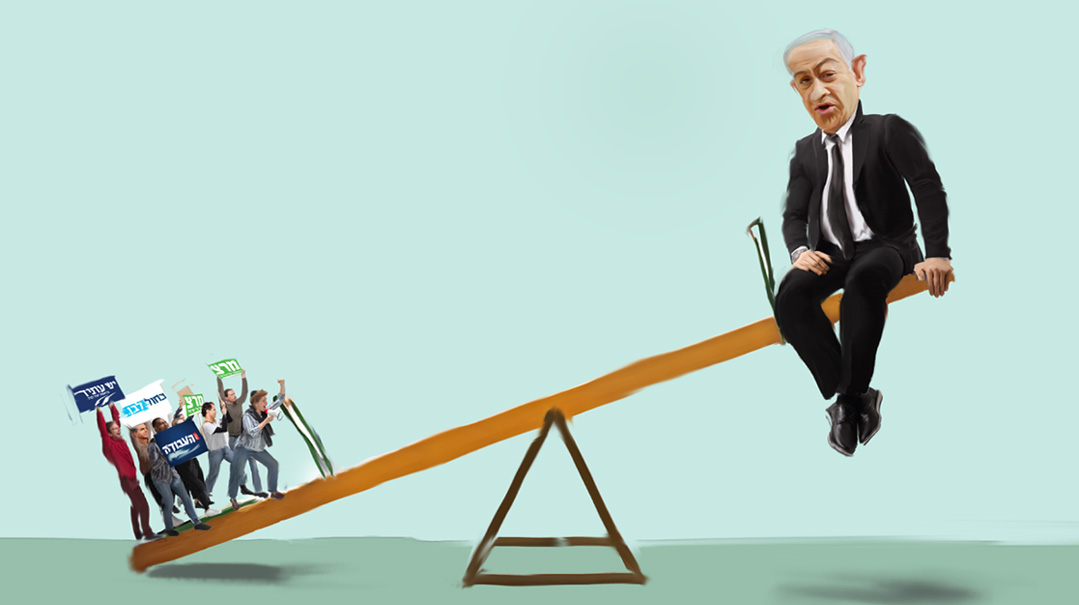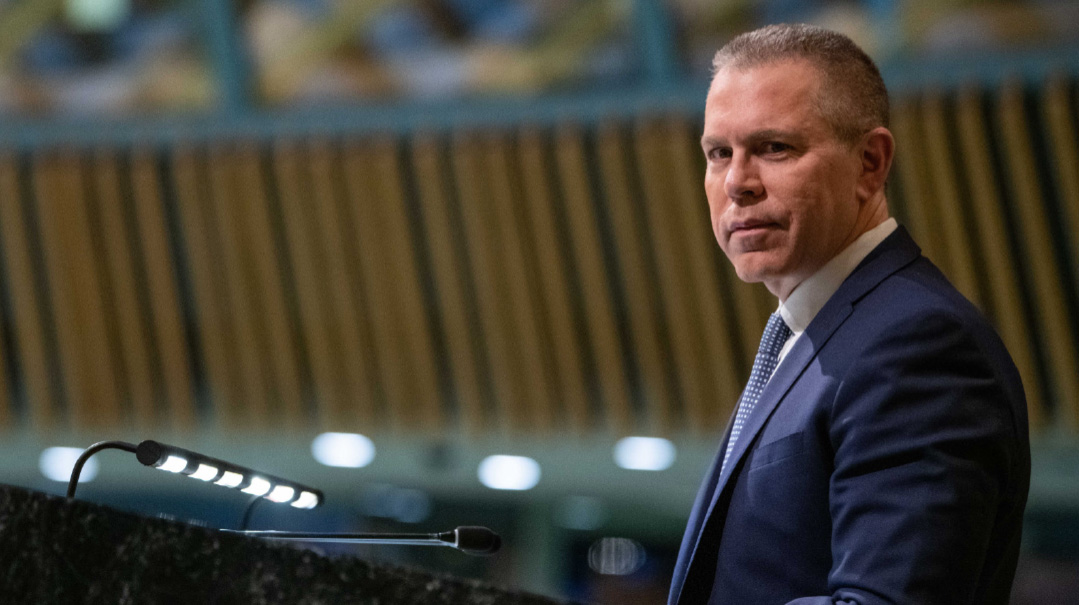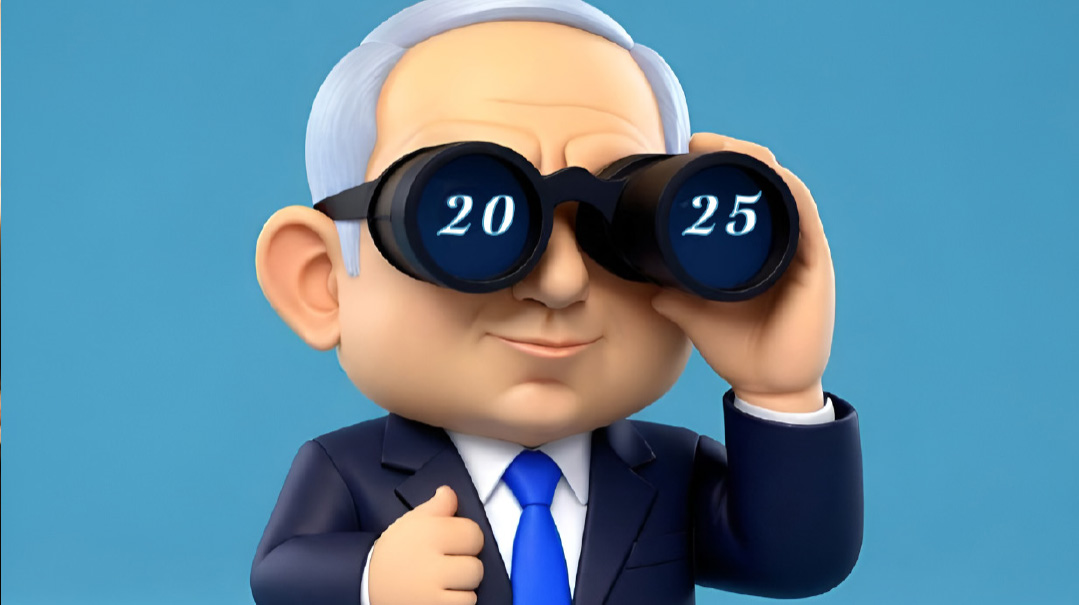Left Weighs Down Bibi’s Prospects

This time, UTJ is going into elections with eyes wide open

Illustration: Stav Golan
- Those who spoke with opposition leader Binyamin Netanyahu in the days before the Knesset’s dissolution last week saw a man swinging between two poles, in an almost manic-depressive state. One moment he seemed confident, sure of victory at the polls; next thing, he was frantic, willing to form a government in the current Knesset at any cost.
Netanyahu was in an agony of indecision, like a gambler weighing whether to go all in. Elections are his last chance to reach a 61-seat majority without having to rely on Bennett and Shaked, Saar and Gantz, who sat in the Bennett government and won’t allow him to reform the justice system. Bibi pointed to recent decisions by the US Supreme Court as proof that the left’s control of the Israeli justice system can be broken.
But while the temptation is real, so is the risk. If he loses, he’ll struggle to regroup.
“We’re all in for Netanyahu,” UTJ chairman Moshe Gafni told me this week. “But if he doesn’t get a majority, we’ll think again.”
In previous rounds, the Ashkenazi chareidi party followed Netanyahu with blind loyalty. This time, UTJ is going into elections with eyes wide open.
- In an in-depth analysis of previous election returns ordered by Netanyahu, the Likud concluded that turnout was anywhere between 10% to 25% higher in left-wing strongholds in the last election.
For Netanyahu, this is more than concerning. It’s downright ominous. Especially given an even more troubling statistic: Between the third and fourth rounds of elections, turnout in right-wing strongholds declined by 7%.
Higher turnout on the liberal left is a worldwide phenomenon, but the Israeli right’s retreat of 7% between the third and fourth rounds represents an acceleration of this trend.
And while left-wing politician Chaim Ramon is credited with saying, “On election day I’ll go to the sea,” it seems that in reality, it’s right-wing voters who spend the day at the beach.
Bib intends to march them to the polls.
“We have to wake up the right-wing base, just as Trump was able to turn out the dormant American right in 2016,” Netanyahu said, setting a goal, but also charting the path.
- Higher turnout on the left may give Netanyahu some sleepless nights, but all hope isn’t lost.
In internal Likud briefings, Netanyahu has outlined both the goal and the method.
“The campaign will focus on the government supported by terrorist sympathizers,” he said, referencing the Arab Ra’am party’s participation in the coalition. “If we keep campaign discipline and don’t let ourselves be distracted, the bloc will win 65 seats.”
Netanyahu’s problem stems from the fact that without the prime minister’s office, he can no longer dictate the news cycle. Before Round Three, I flew with him to Washington for the unveiling of Trump’s Deal of the Century and saw firsthand how skilled he is at translating governing achievements into campaign material.
His main rival Yair Lapid, who occupies the prime minister’s office as of last Friday, is no stranger to TV himself, and has set himself the goal of making zero missteps as prime minister. The four months remaining to the November 1 election are an eternity in political terms. At the end of the day, the battle will hinge on who blunders first.
(Originally featured in Mishpacha, Issue 918)
Oops! We could not locate your form.






